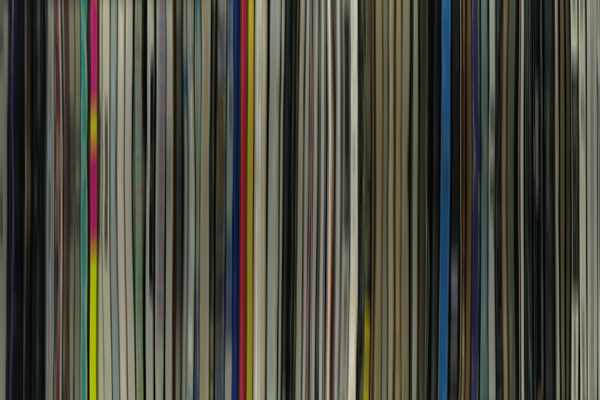The Guardian has a new ‘group blog’ , called “comment is free”. Instant impressions:
- It is very Guardian-like
- It is very newspaper-like; Its editors pick what is to be given front page prominence (like they know better than the readers what is or is not interesting). That is so 2005/Slashdot. The users decide what is cool and what is not cool.
- It is not blog like
- Its stuck to the left
- It is set in three columns
- No user feedback, other than comments, ie no moderation of stories or comments or user tagging
Read the introduction:
Welcome to Comment is free, the first collective comment blog by a British newspaper website. It will incorporate all the regular Guardian and Observer main commentators, many blogging for the first time, who will be joined by a host of outside contributors – politicians, academics, writers, scientists, activists and of course existing bloggers to debate, argue and occasionally agree on the issues of the day.
Why are we launching it now? Because it’s obvious to us that our major competition for opinion and debate is moving online, and unless we move with it, we’re failing our journalists and future generations of readers. […]
Translation; everyone is getting their news from the blogosphere. They are reading our stories and then spinning them. We are losing influence. The Empire must strike back.
We need to expand and deepen the debate which takes place every day in our newspapers and for which we have an unrivalled reputation. We need to ensure that the Guardian and Observer remain at the heart of the liveliest liberal-left discourse (although we’ll continue our long tradition of carrying voices from across the political spectrum). How? Not only by doing so much more than we can in print, and much more immediately, but by putting our own writers where their real rivals are. Readers, too, need to be at the heart of the conversation, and much more engaged than print allows. […]
The debate is already deepened, thanks to the blogosphere. The fact that it has taken The Guardian so long to do this proves that brontosaurus media is on the way out. Now, had they cloned Digg, this would be an entirely different matter, they might have had their Jurrasic Park style second chance at life, but they did not, and they have missed the next phase of news aggregation, without good reason either. “Readers, too, need to be at the heart of the conversation” Un oh, dinosaur speak spilling out.
Comments will only be allowed with a valid e-mail address and registration, to try and keep the standard of the debate as high as possible.
Why? If the readers are to be at the heart of this mythical paleo babble “conversation” why should we obey this absurd command when we can set up our own blog in 5 minutes and then publish and be read? If everyone wants to read rants, let them, and if not, let the readers moderate themselvs. Editors no longer have a job; this is what the tectonic shift is all about, and its frighetening the shit out of these people.
Please tell us what you think. Post your comments below or email us at comment.is.free@guardian.co.uk.
or how about “post on your own blog and link to us” heh, of course not, because they are for centralized control of thought and agenda, the top of the pyramid being the grand poohbah editor. Posting to your own blog means accepting that other blogs are the equal of any Guardian Blog, diminishing their importance, which is happening quite nicely and naturally wether or not they like it.
Some of the comments on this post are interesting, the first saying “just what is your job Ms editor” the others saying that they dont like their location being attached to their names The editor, finally weighed in with an apology for not commenting on the comments with this amazing text:
Hello again – apologies for not coming back earlier to answer some of your points but it’s been a bit busy today.
Say what? You just launch a new blog, you are the ‘editor’ and you leave your keyboard while the comments are flooding in? You have to pay attention to your blog if you are going to rul0rz it, and to not be there in the first few hours, I mean, honestly, do you KNOW anything about what you are doing?
My role as editor. The central role, as with any editor, is to try and make the site the most lively, diverse, engaging, surprising comment site around.
You arent needed for that. Look at Digg. Be like Digg. Or die. The users make the site lively, they provide the diversity (which is not true diversity if there is a black crow school marm hovering over everyone making sure you dont say ‘Fuck’) they also provide the surprising comment. All of that has nothing to do with editors.
We (the team) will try and ensure that we have a broad range of opinion and that means doing some direct commissioning of particular people on particular subjects, while encouraging a wide range of contributors to blog as and when they want on whatever subject they want. I won’t be doing what I’ve spent my life as an editor on the paper doing – close copy editing and going back and forth to writers working with them to change their pieces, improve their pieces or think about arguments they haven’t thought about. The nature of the blog is that we will have to try and let go a bit and let peple say what they want within the bounds of libel and the constraints of our blogging guidelines.
Pointless. Either let go and destroy the death star, or be a newspaper, not some half assed hybrid snore-fest. We have everywhere else to read; why should we read anything with even the slightest bit of control imposed upon it?
Commenting on pieces taken from the paper: this is something we’ll introduce as soon as possible. It’s purely a technical issue, and we’re keen that everything that appears on the site can be commented on.
Computer illiterates!
Comments: yes, we’ll keep a close eye on these.
WHY? You are not responsible for the comments that users make, if you are legally in the UK, then you need to spin off the blogs to a company in another jurisdiction whose job it is to run the your free speech wing, insulating you from prosecution. You simply cannot do this in the blogosphere, because we will go and read something else, where people are totally free to express themselvs, on the exact same stories, even stories from your own newspaper. This is pretty basic.
We hope registration will help keep up the standard of the debate, but we’ll watch for the ususal libel issues or breaches of our talk policy code.
What a monumental waste of resources; indeed someone has already asked the question:
Does this mean we are finally going to be allowed to comment on the Jowell-Mills saga, or are you going to close down that debate like you did on the Newsblog?
And there you have it. It will be stillborn in terms of doing something really groundbreaking and worth a repeat visit.
Discussions with authors about their articles. I’m encouraging our contributors to re-blog on the reaction to their articles and comment on the comment. Some will, some won’t, and I’m not insisting on it.
‘I’m not insisting on it’. Brava!
‘re-blog’?? ‘conversations’?? ‘upper-positive plates‘??
When Digg launches its ‘other than tech news’ site, it will be very interesting to see how it gets taken up. I have to say that my first impressions of Newsvine were a little dampened. It is completely beautiful design wise, modern, fast etc, but I found that the blogs that people are wrting there interfere with my search for news.
I use blogs to read the facts about news, and for the most part I use news sites to collect the stories initially; bloggers dont have the resources to get many stories together in one place, and so in my mind, I keep these two resources separate; people with the means to gather thousands of stories, and people with a free reign to tell the absolute truth on any subject. Where these two liquids meet in an emulsion is where the interesting things are happening, and what I need is a tool to navigate that emulsion, like Digg.
Newsvine tries to mix oil and water; news sources and blog writers. There is no distinction between the two in that site, and so to me, it is a mess; ‘News Type: Opinion’ is an example of this mess. An opinion is not a news type. Opinions are opinions and news is news; oil is oil and water is water. Digg gets the balance just right, the users set the agenda, control what gets seen, can say whatever they like, and you get to read the news and the first line of cobweb sweeping comments all in one place. It is extremely simple to use, easy to look at and navigate, and fast to get what you need out of it. Newsvine, though beautiful, is a little labrynthine, the headlines are not given equal weght on each page (there is a big headline, and then lots of smaller – read less signifigant – ones, one story has a photo, and thes su stories do not).
It feels like its energy is spread out too much, wheras on Digg, the energy flows neatly down the page from headline to headline into the comments and back again. You can take it all in, and there is lots of it, and it seems like you never miss anything important, since all the tech sites repeat Digg stories after they have been dugg. This is crucial; I feel like I am keeping up to date when I read Digg, whereas with Newsvine, I feel like I am missing something, and the blogs there only reinforce that feeling, because they are taking up space that should be spent on news source fed articles.





